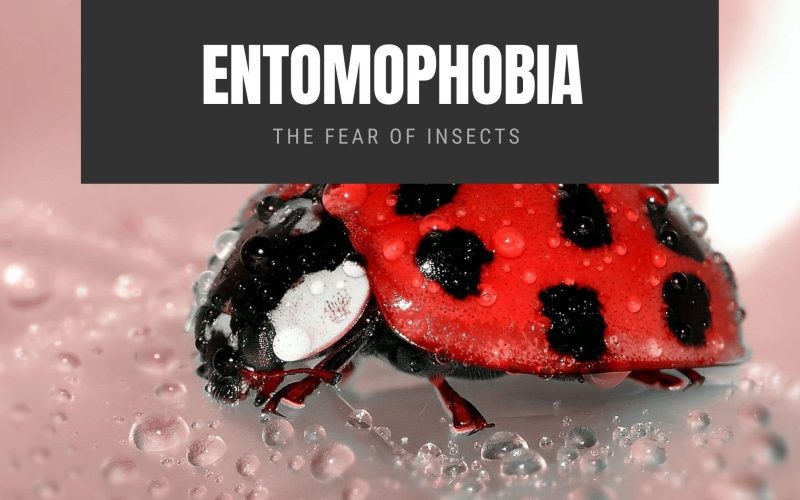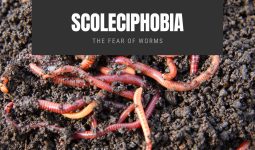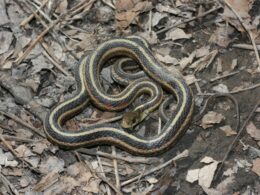As a little girl, I hated cockroaches. I would cringe or jump on the bed at the mere sight of one. This is true for most people.
But beyond the rational fear of an irritating insect, some people get so afraid that it cripples some aspects of their lives. This is called entomophobia.
You can know if you have entomophobia. Though a physician formally diagnoses it, there are some signs you can’t deny.
Read this post to find out.
What is Entomophobia?
Entomophobia is an abnormal, irrational, persistent fear of insects or bugs. It is often called insectophobia. The word is derived from the Greek words “entomos” (Insects) and “phoobos” (Fear).
Developing excessive unrealistic fear for one or more insect classes differs from being slightly irritated by seeing an insect.
It is an intense fear in which the mere sight or picture of the insect you dread, whether cockroach, spider, butterfly, or any other insect species, completely disrupts your peace and even affects your stability.
It is estimated that 6% of the US population has this fear. No doubt, researchers believe that humans developed this fear due to the venom insects like scorpions and spiders possess and the other dangers a couple of these insects pose to human life or one’s health.
Insects such as houseflies can contaminate food, while mosquitoes (bloodsucking vessels) can cause malaria, a severe sickness that requires urgent medical attention.
Notwithstanding, it does not automatically justify an abnormal fear of insects, as this anxiety disorder can lead to troubles that interfere with your daily routine.
Phobia plays a silly trick on your mind, causing panic and refraining from outdoor activities. If you have entomophobia, you may do the unbelievable to avoid insects or experience significant distress when encountering them.
This kind of fear should be straightened out with medical personnel.
Symptoms of Entomophobia
Entomophobia can manifest in different signs and symptoms, including physical or psychological.
Adults with entomophobia know that what they feel is only an irrational fear of insects that don’t pose an actual danger.
However, they still feel the following when exposed:
- Anxiety symptoms, like rapid heartbeat, tightness in the chest, or shortness of breath when thinking of insects or when a bug is present. A fast heartbeat can further cause difficulty in breathing.
- Avoiding places where you may encounter an insect
- Heightened feelings of anxiety as an insect comes closer to you
An entomophobe also experiences a range of psychological symptoms, including:
- Panic attacks
- Fear of dying
- Hyperventilating
- Fear of not being in control
- Fear of fainting
Causes of Entomophobia
Although no specific causes of phobia exist, the following can trigger the condition.
- Learned history
- Past experiences
- Biological factors.
Learned Experience
Learning experiences that cause entomophobia can be direct, observational, and informational.
A direct learning experience may involve an adverse traumatic event involving insects, leading to a phobia or fear of insects.
An observational learning experience involves being scared of insects because people around you fear them.
For instance, a child can become fearful of a particular insect because her parents fear it.
For the informational learning experience, a person develops a fear of insects after hearing about the insect. This is most common for truly dangerous insects.
Biological Factors
Biological factors center on genetic experience. Some people are genetically susceptible to phobias. That is, it is just their psychology to be afraid of insects.
How is Entomophobia Diagnosed?
Not everyone with a phobia receives a formal diagnosis, as many people are very much acquainted with their specific phobia.
It is terrible to avoid phobias, which is why you must be appropriately diagnosed and treated correctly.
To get a formal diagnosis of entomophobia, your doctor will first consider the seven diagnostic criteria outlined in the fifth edition of the Diagnostic and Statistical Manual of Mental Disorders (DSM-5) .
He will conduct a thorough clinical interview and review your symptoms and medical and psychiatric history.
Treatment of Entomophobia
Entomophobia can affect one’s quality of life, and suitable treatment can help manage one’s reactions when one sees an insect. Entomophobia can be treated with psychotherapy or medications.
The most common psychotherapies for entomophobia are:
Exposure Therapy
This therapy gradually exposes you to insects to help change your reactions to insects. It is also called systematic desensitization. Exposure therapy usually starts with discussing your fear of insects.
You may see pictures or videos of insects. Gradually, you will be exposed to live insects in a controlled environment.
Cognitive Behavioral Therapy (CBT)
This therapy works on your perception, thoughts, and mind and helps deal with every trace that triggers the fear in your mind. CBT deals more with personal psychology and developing control over your mind to overcome anxiety.
Conclusion
Treating entomophobia is a necessity. Antidepressants may be recommended for people living with phobia.
This helps suppress the anxiety rate, but home remedies are also a great way to handle these problems.
One home remedy to try is yoga. It will kill fear, build your personality, and help you appreciate the true beauty of nature.








